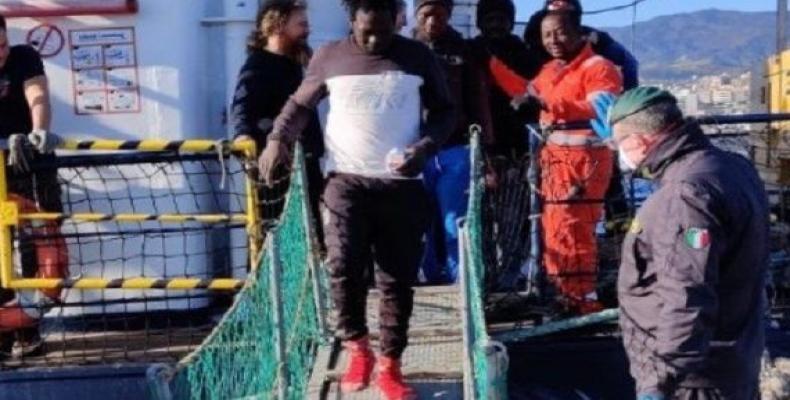Rome, December 5 (RHC)-- Italy's Interior Minister has announced that it will allow the landing of 121 migrants who remained aboard the Alan Kurdi and Ocean Viking vessels. Subsequently, they will be relocated to other European Union (EU) countries.
Both the Sea Eye's vessel (Alan Kurdi) and the Doctors Without Borders' ship (Ocean Viking) waited more than five days for authorization to disembark in the port of Sicily.
The landing of their rescued persons happens after the European Commission activated the protocol for relocating migrants. Once that happened, Germany and France offered to receive some of them.
Among the first 61 people landed, who stepped on land at the Messina port, are 17 women, a pregnant woman, 21 minors, and 7 children, 2 of whom are 11 and 17 months old.
immigrants from Lesbos with the assistance of the Pope. Archbishop Krajevski recalled the Pope's words: "If each parish or vicar took a person or a family, there would be no one left in Lesbos."
With the landing of these African migrants, the so-called Valletta Agreement, which would allow the EU to manage some migration flows from the Mediterranean, entered into force. Its operation is, however, far from solving all humanitarian problems in the region because it is not a compulsory multilateral deal.
"The fact that the Agreement is operational does not mean it is 'formal'. It remains a declaration of intent to which countries will voluntarily adhere,” Il Fatto Quotidiano explained.
The Valletta Agreement allows Germany, France, Italy, and Malta to have a better political image given that it prevents dramatic situations such as those experienced at the era of Matteo Salvini, a far-right former Interior Minister whose “Closed Ports” policy ran over even humanitarian organizations.
“The situation is far from resolved. There is still a strong discrepancy between the number of migrants that EU countries promised to relocate and the number of them they will take over."


